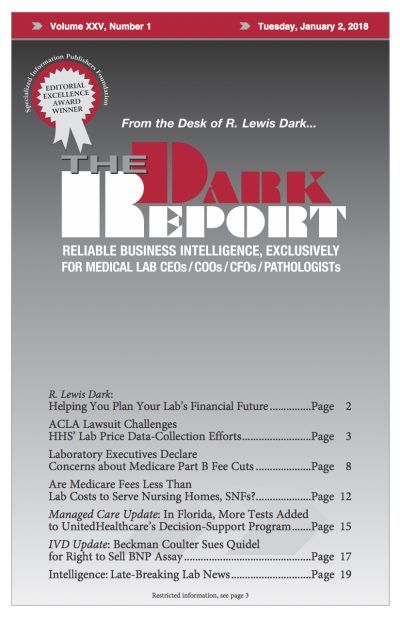IN THE FIRST BROAD EXPANSION OF ITS pilot decision-support program for clinical lab testing in Florida, UnitedHealthcare (UHC) will add genetic and molecular tests, drug tests, and pathology procedures, among other assays starting in two months. On March 1, UHC will expand its laboratory benefit management program in Florida beyond the initial 80 routine anatomical …
In Florida, More Tests Added to UHC’s Decision-Support Program Read More »
To access this post, you must purchase The Dark Report.


